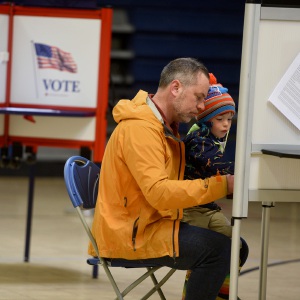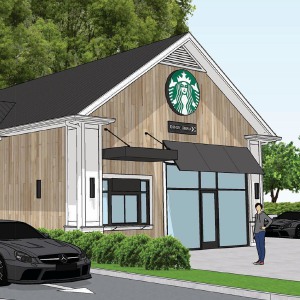Senate bill proposes $75 million in spending to help state housing crisis
| Published: 02-23-2023 7:54 PM |
A three-part housing plan before the legislature could present new solutions to alleviate the current state-wide crisis.
SB 231 would appropriate $75 million to tackle three areas pertaining to the housing crisis — support for the homeless, construction of affordable and workforce housing and redevelopment of historic structures.
“We have a housing problem in our state,” said Daniel Innis, a Bradford, N.H., Republican, who is the prime sponsor of the bill. “While the problem is certainly quite large, I think that the amount of funding in this particular bill moves us forward in a positive direction, provides communities with the help that they need and ideally will get some folks off the street.”
At a time when rental vacancy rates are still below 1%, the cost of housing in New Hampshire has squeezed communities across the state. Those who are evicted are finding new increased costs of living. Even those who have housing vouchers are struggling to put them to use. It’s a problem for individuals trying to find housing and for businesses desperately trying to hire workers.
“This situation has made it more expensive to live here and difficult to attract newcomers who want to experience the Live Free or Die spirit,” said Gov. Chris Sununu in a letter to the Senate Finance committee.
Many housing advocates say the solution to the crisis is simply to continue to build. Many state legislators and Sununu are in agreement that is the best way forward, with SB 231 as the vehicle.
Support for people experiencing homelessness comes in the form of a $10 million appropriation to the Department of Health and Human Services. The funds focus on both supporting shelter programs and also prevention work on evictions and housing stabilization.
The next component of the bill focuses on accelerating the construction of new housing developments, which supports the InvestNH program, a $100 million fund that the governor announced in July.
Article continues after...
Yesterday's Most Read Articles
 Kenyon: Dartmouth alumni join union-busting effort
Kenyon: Dartmouth alumni join union-busting effort
 Hartford voters approve school budget and building repair bond
Hartford voters approve school budget and building repair bond
 Starbucks store planned for Route 120 at Centerra
Starbucks store planned for Route 120 at Centerra
 Local Roundup: Hanover pitcher throws a perfect game
Local Roundup: Hanover pitcher throws a perfect game
 Parker up for parole more than 2 decades after Dartmouth professor stabbing deaths
Parker up for parole more than 2 decades after Dartmouth professor stabbing deaths
The Department of Business and Economic Affairs would receive an additional $30 million to continue to accelerate the construction of affordable and workforce housing units.
The program saw over 150 eligible applicants, according to Taylor Caswell, the commissioner of the Department of Business and Economic Affairs. The additional funding would open a second round of funding for projects who were not awarded grants previously.
“This is a tremendous move forward that continues a lot of the unprecedented investments of resource and finance that we have put into this housing issue in the state over the last couple of years,” said Caswell.
With the InvestNH, funding allowed the state to support several projects in Concord, like a proposed development on Sheep Davis Road. The fund will help create 152 housing units in Concord, with 90% considered “affordable.” Statewide, almost 1,500 units will be constructed by May 3, 2024, with roughly 60% of total units across the state deemed affordable.
However, to achieve a balanced housing market where supply meets demand — considered to be a 5% rental vacancy rate and a 2% ownership vacancy rate — the state needs to add more than 66,000 units by 2030, experts say.
Both “workforce” and “affordable” housing mean different things depending on the developer and project. Under the InvestNH fund, “affordable” was defined by 80% or less of the area median income.
That translates into a rental cap of $1,570 for a one-bedroom in Merrimack County. The state definition of “workforce” housing includes up to 100% of area median income.
The final component of the spending package establishes a historic housing tax credit, which would provide contributions to restoring and converting historic structures into housing.
The bill has bipartisan support with five Republican and eight Democrat Senators sponsoring the legislation. Sununu also wrote to the Senate Finance committee Tuesday, ahead of the bill hearing, in support of the legislation.

 Zantop daughter: ‘I wish James' family the best and hope that they are able to heal’
Zantop daughter: ‘I wish James' family the best and hope that they are able to heal’ Chelsea Green to be sold to international publishing behemoth
Chelsea Green to be sold to international publishing behemoth
